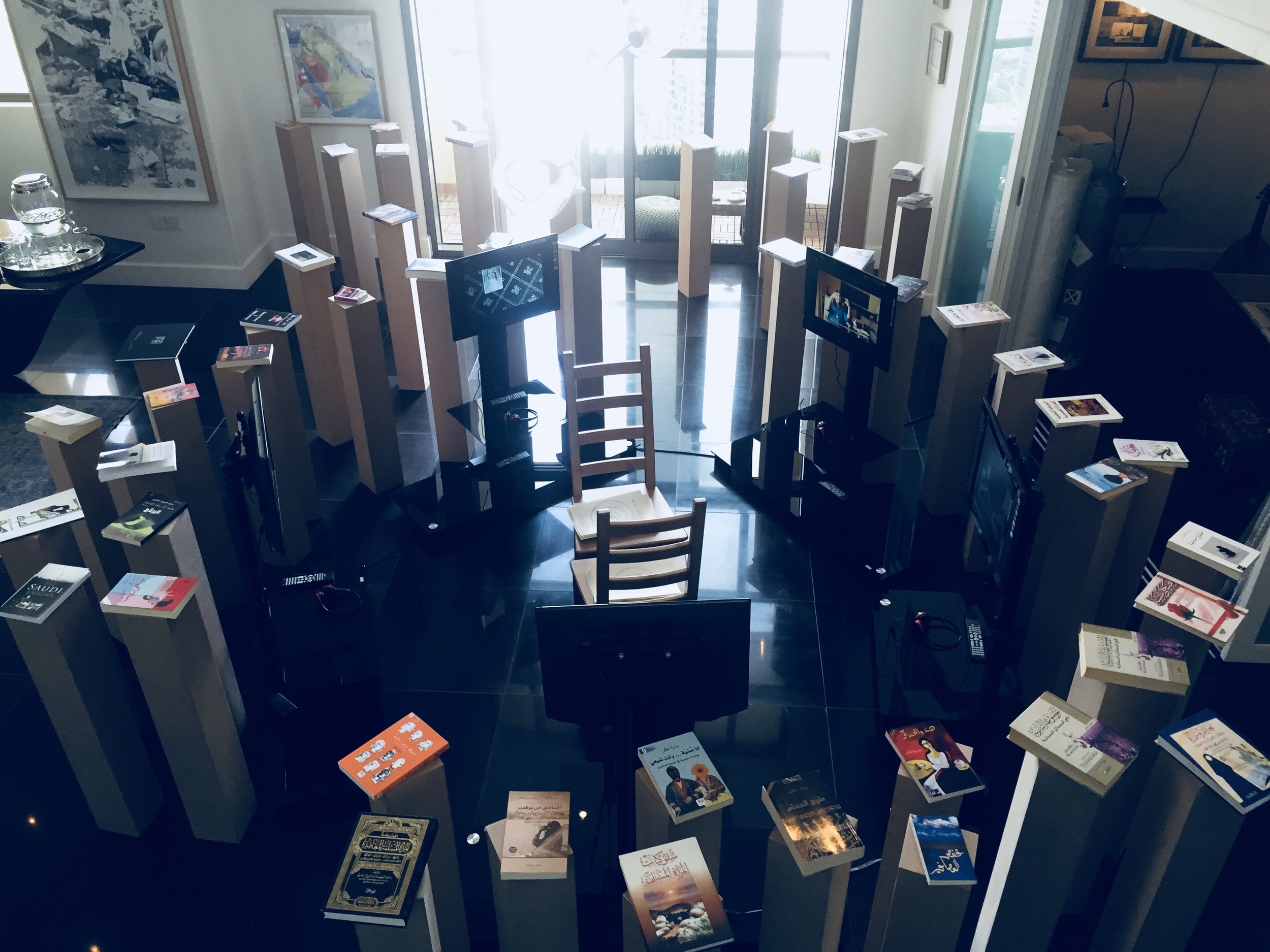The Installation
Full Circle
We started this project with a desire to build an archive of women’s stories. As our journey evolved, we became enchanted with the notion of critiquing the archive itself: A project to mock false representations of others through deceptive truth, power, and objectivity. Yet here we are returning full circle and putting women’s voices first. We come back to our initial starting point changed by the experience of border crossing and the dialogic exchanges to create something new. Here are the stories of women’s voices amidst the cacophony. Here is a story we can call our own.
The Others
Saudi women’s voices are underrepresented in history. Even when they are represented by others (the West/Media/Official Narratives) they either exist as a collective monolith in the form of "oppressed Saudi women” or pitted individually as exceptional "heroines" or spoken for as a symbol of morality. The result is that Saudi women are, collectively, in a state of being "hyper-visible": they are simultaneously present yet mystified; constantly talked about as a subject yet objectified and misunderstood at the same time.
The Narrators
To tell a story of one’s life is to give meaning to one’s existence. Storytelling is powerful because it orders the chaos of events, people, memories, times, and places encountered. It allows the narrator to assert: I was there! I lived. I triumphed. I cried. I saw. And perhaps most importantly: the story is mine to be told. Looking back at one’s life means actively reconstructing what has happened in the past and imbuing it with a logic of coherence experienced in the present. Story telling is, in fact, the purest form of conversation. The women we interviewed were women we knew. Women who’s stories were familiar to us. Through hearing their stories our own stories became increasingly clear.
Centered Voice
At the heart of our project lies an instinctive claim to our voice.
We take a feminist and deeply subjective approach to create our own history of the “now” that enables us to tell it with much more nuance, strength, emotion, and sentimentality compared to the hegemonic versions of history written by powerful others. We explore the narratives of women both as individual stories and as a collective, engulfed by dominant representations created by others.
Despite the diversity of experiences, locations, and realities of the storytellers we encountered, we learned that navigating discourses means power.

